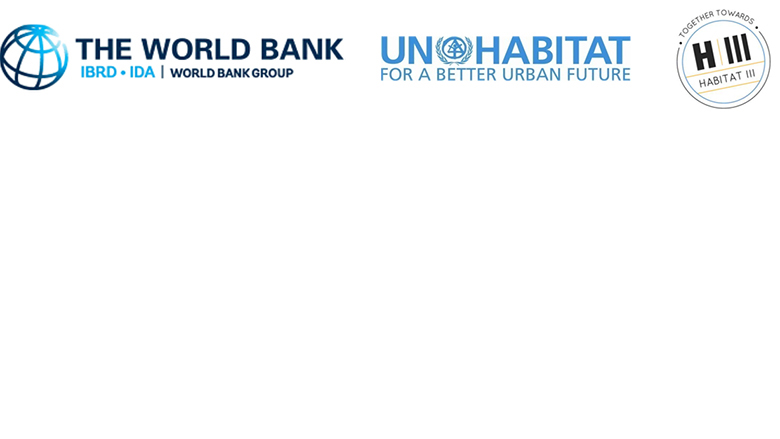Lima, 10 October 2015 – The World Bank Group and UN-Habitat share a vision of sustainable urban development. The adoption of the 2030 Agenda for Sustainable Development is a new opportunity to end poverty and ensure prosperity for all.
Cities are engines of growth, innovation, and job creation. They are responsible for 80 percent of global GDP. And when they are well-planned, well-governed, and well-financed, cities drive national economic growth. Cities can also provide opportunities for employment, education, services, and upward social mobility.
Good urbanization is not a passive outcome of economic growth. Benefits of urbanization are not guaranteed. Without appropriate legislation, good planning, and adequate financing, cities can fail their populations, especially the poor.
Cities are also vulnerable to climate change and disasters because of their concentration of assets, people, and fragile ecosystems. Globally, 80 percent of the largest cities are vulnerable to severe earthquakes and 60 percent are at risk from tsunamis and storm surges. Many of the world’s largest cities are either coastal, in a delta, or on a riverbank. Urban agglomerations are at risk of flooding due to powerful storms and sea-level rise.
Cites are responsible for two-thirds of the world’s energy consumption and 70 percent of greenhouse gas emissions. Cities are beginning to take action, and they have a unique opportunity in helping the world achieve the 2 degrees target. Good and sustainable urbanization, that promotes well-designed compactness and connectivity, is good for climate change mitigation and adaptation.
The challenge of our times is that most of the new urbanization is predominantly spontaneous and unplanned. Instead of positive outcomes, it often yields negative externalities such as congestion, sprawl, segregation, and pollution. Moreover, the speed and scale of urbanization brings challenges, including meeting accelerated demand for affordable housing, well-connected transport systems, and inclusive services for all.
Sustainable development depends on sustainable urban development. The Sustainable Development Goals recognize the power of urbanization to accelerate prosperity and well-being. And they give cities a clear role in this transformation. To meet these demands, cities will need to enhance their financial and institutional capacities. National and local governments need to work together to leverage their respective roles and opportunities.
The United Nations Conference on Housing and Sustainable Urban Development—Habitat III in Quito, October 2016—will be a unique forum for working with national governments. It will help set the basis for adequate rules and regulations, which govern people living close together and sharing common services; for better spatial planning and design, which optimize well-designed density, connectivity, and diversity; and for a financial plan, which sustains the functioning of the city and ensures economic prosperity. It is time to rethink urbanization and promote national urban policies.
As we intensify our partnership towards the Paris COP21 Climate Summit and on to Habitat III in Quito, we encourage national governments, local authorities, citizens, and stakeholders to be involved in the definition and implementation of the new urban agenda. We call on development partners to join us in these efforts. We recognize the importance of effective public-private partnerships to drive the transformational role of sustainable urbanization.
Now it is time to join forces and support cities at the frontline of human development as they strive to be inclusive, safe, resilient, and sustainable.

